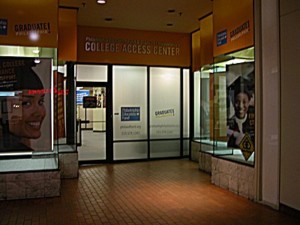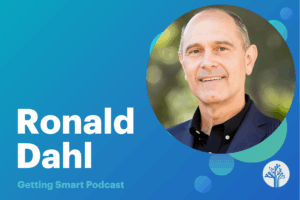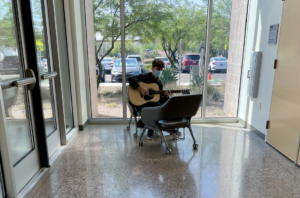Some College, No Degree: Online Learning Makes Returning to College Possible

“Some College, No Degree,” an American RadioWorks documentary produced by Emily Hanford, explores how online learning can help the approximately 37 million Americans who dropped out of college attain a degree amidst their busy work and family schedules.
Hanford’s interest in the topic stemmed from “Rising by Degrees,” a previous audio documentary she produced about Latinos in community colleges. This coupled with her interest in online learning as well as growing reports and stories about the number of students who partially complete college, drove her research into the story.
An interviewee in the documentary, Tony Carevale who is the Director of the Georgetown University Center on Education and the Workforce, says “nearly 60 percent of all jobs in the United States now require higher education.” This sudden shift in job requirements has boosted the growth in college-bound students more than ever before.
“The economic value it brings is really huge. And the sort of psychological, emotional, status and class value is huge,” says Hanford. “I don’t think we should discount that.” Yet while the value is prevalent, Hanford says, “[Financing] is the number one impediment, the number one problem and the one for which we have the least solutions.”
According to the documentary, attending college is not a sustainable reality for many due to cost and time. Students who come from low-income families lack the financial resources to live on campus and attend school fulltime – a fading ideal. Others who leave college before attaining a degree have jobs and families that they are obligated to, tying up their time and money for finishing an education.
In addition, most universities require students to complete basic, introductory courses that students who have been out in the workforce for years already know. These requirements extend the amount of time it takes to finish a degree, further discouraging dropouts to complete their education.
So, the question becomes how do we help these students return to college to finish their degrees, says Hanford.
Online programs like the ones offered at the Center for Adult Learning in Louisiana, known as the CALL program in the documentary, allow these students to test out of introductory courses, complete courses online and meet the practical goals returning college students are looking for – a degree for a better job and way of life.
“I think [online learning] is going to become more and more the way that everyone learns,” says Hanford, “I think it’s an incredibly important option to offer in particular to ‘unconventional college students,’ but truthfully unconventional college students are now the majority.”
More and more students are taking on jobs through college, caring for kids and working toward a degree later in life. At CALL, students can complete course work and access materials from a home computer around their busy schedules. This cuts back on commuting time and costs as well as makes learning possible from anytime, anywhere.
Hanford says that there’s a lot of public discussion about the worth of college in peoples lives. “It’s very hard to find people who finished their degrees and aren’t happy they did,” says Hanford. “We’re on a trajectory where education is more and more important.” Yet, she articulates that conventional colleges need to transform their model of how people go to school and learn to accomodate students who have kids or jobs.
A Sloan Consortium survey determined that in the fall of 2010, 30 percent of students took at least one online class. “The train has left the station with online learning,” says Hanford, “so the important question isn’t about whether people should learn online, but how people should learn online.”
Listen to the documentary to hear the stories of two working adults who returned to college through the CALL program and expert opinions from professionals working to make the return to college more attainable for many Americans today. “Some College, No Degree” is a part of a series of three documentaries by American RadioWorks looking at the theme of Tomorrow’s College.






0 Comments
Leave a Comment
Your email address will not be published. All fields are required.